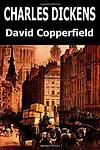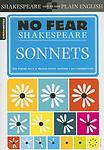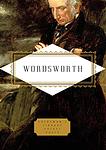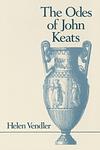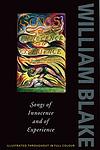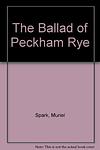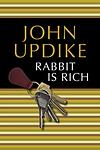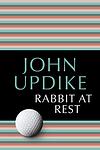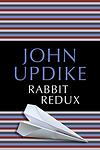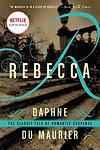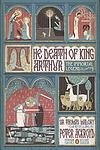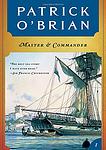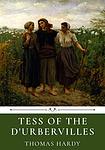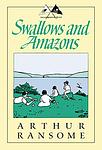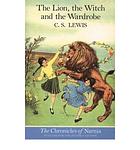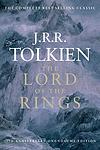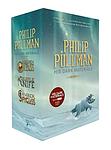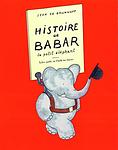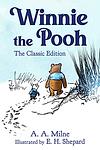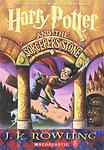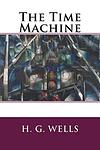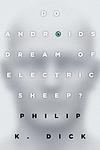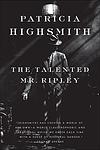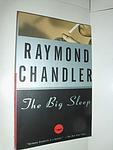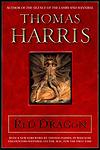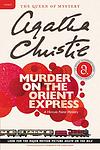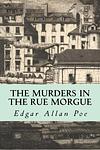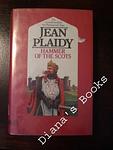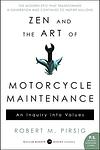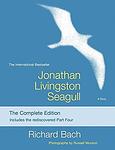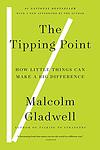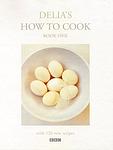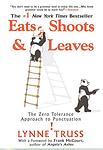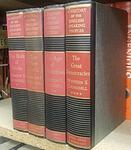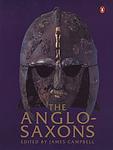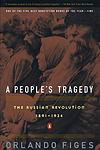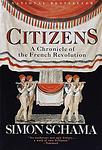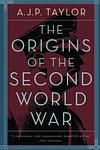110 Best Books: The Perfect Library
This is one of the 282 lists we use to generate our main The Greatest Books list.
-
The Iliad by Homer
This epic poem focuses on the final weeks of the Trojan War, a conflict between the city of Troy and the Greek city-states. The story explores themes of war, honor, wrath, and divine intervention, with a particular focus on the Greek hero Achilles, whose anger and refusal to fight have devastating consequences. The narrative also delves into the lives of the gods, their relationships with humans, and their influence on the course of events.
-
The Odyssey by Homer
This epic poem follows the Greek hero Odysseus on his journey home after the fall of Troy. It takes Odysseus ten years to reach Ithaca after the ten-year Trojan War. Along the way, he encounters many obstacles including mythical creatures, divine beings, and natural disasters. Meanwhile, back in Ithaca, his wife Penelope and son Telemachus fend off suitors vying for Penelope's hand in marriage, believing Odysseus to be dead. The story concludes with Odysseus's return, his slaughter of the suitors, and his reunion with his family.
-
The Chronicles of Barsetshire by Anthony Trollope
"The Chronicles of Barsetshire" is a series of six novels set in the fictitious English county of Barsetshire, revolving around the dealings and social intrigues of the Anglican clergy and the landed gentry. The series intricately explores the relationships, the love affairs, the ambitions, and the moral dilemmas of a multitude of characters, often with a good dose of satirical humor. The novels also delve into the politics of the church and the social issues of the time, providing a detailed and often critical portrait of Victorian-era society.
-
Pride and Prejudice by Jane Austen
Set in early 19th-century England, this classic novel revolves around the lives of the Bennet family, particularly the five unmarried daughters. The narrative explores themes of manners, upbringing, morality, education, and marriage within the society of the landed gentry. It follows the romantic entanglements of Elizabeth Bennet, the second eldest daughter, who is intelligent, lively, and quick-witted, and her tumultuous relationship with the proud, wealthy, and seemingly aloof Mr. Darcy. Their story unfolds as they navigate societal expectations, personal misunderstandings, and their own pride and prejudice.
-
Gulliver's Travels by Jonathan Swift
This classic satire follows the travels of a surgeon and sea captain who embarks on a series of extraordinary voyages. The protagonist first finds himself shipwrecked on an island inhabited by tiny people, later discovers a land of giants, then encounters a society of intelligent horses, and finally lands on a floating island of scientists. Through these bizarre adventures, the novel explores themes of human nature, morality, and society, offering a scathing critique of European culture and the human condition.
-
Jane Eyre by Charlotte Bronte
The novel follows the life of Jane Eyre, an orphan who is mistreated by her relatives and sent to a charity school. As she grows up, Jane becomes a governess at Thornfield Hall, where she falls in love with the brooding and mysterious Mr. Rochester. However, she soon learns of a dark secret in his past that threatens their future together. The story is a profound exploration of a woman's self-discovery and her struggle for independence and love in a rigid Victorian society.
-
War and Peace by Leo Tolstoy
Set in the backdrop of the Napoleonic era, the novel presents a panorama of Russian society and its descent into the chaos of war. It follows the interconnected lives of five aristocratic families, their struggles, romances, and personal journeys through the tumultuous period of history. The narrative explores themes of love, war, and the meaning of life, as it weaves together historical events with the personal stories of its characters.
-
David Copperfield by Charles Dickens
This novel follows the life of its titular protagonist from his childhood to maturity. Born to a young widow, David endures a difficult childhood when his mother remarries a harsh and abusive man. After his mother's death, he is sent to a boarding school before being forced into child labor. As he grows, David experiences hardship, love, and loss, all the while meeting a colorful array of characters. The novel is a journey of self-discovery and personal growth, showcasing the harsh realities of 19th-century England.
-
Vanity Fair by William Makepeace Thackeray
This classic novel follows the lives of two contrasting women, the cunning and ruthless Becky Sharp and the sweet and naive Amelia Sedley, against the backdrop of English society during the Napoleonic Wars. The book is a satirical exploration of the obsession with wealth, status, and social climbing, and the moral bankruptcy that can result from such pursuits. The narrative weaves an intricate tale of love, betrayal, and redemption, exposing the vanity and hypocrisy of high society.
-
Madame Bovary by Gustave Flaubert
Madame Bovary is a tragic novel about a young woman, Emma Bovary, who is married to a dull, but kind-hearted doctor. Dissatisfied with her life, she embarks on a series of extramarital affairs and indulges in a luxurious lifestyle in an attempt to escape the banalities and emptiness of provincial life. Her desire for passion and excitement leads her down a path of financial ruin and despair, ultimately resulting in a tragic end.
-
Middlemarch by George Eliot
Set in the fictitious English town of Middlemarch during the early 19th century, the novel explores the complex web of relationships in a close-knit society. It follows the lives of several characters, primarily Dorothea Brooke, a young woman of idealistic fervor, and Tertius Lydgate, an ambitious young doctor, who both grapple with societal expectations, personal desires, and moral dilemmas. Their stories intertwine with a rich tapestry of other townsfolk, reflecting themes of love, marriage, ambition, and reform, making a profound commentary on the human condition.
-
The Sonnets by William Shakespeare
"The Sonnets" is a collection of 154 poems that explore themes such as love, beauty, politics, and mortality. The sonnets are written in a specific form that the poet popularized, consisting of 14 lines with a specific rhyme scheme. The collection is divided into two sections: the first 126 sonnets are addressed to a young man, while the last 28 are addressed to a woman known as the 'dark lady'. This collection is widely considered one of the greatest achievements in English literature.
-
The Canterbury Tales by Geoffrey Chaucer
The Canterbury Tales is a collection of 24 stories that follows a group of pilgrims traveling from London to Canterbury to visit the shrine of Saint Thomas Becket. Told in Middle English, the tales are narrated by a diverse group of pilgrims, including a knight, a miller, a reeve, and a pardoner, who share their stories to pass the time during their journey. The tales, which range from chivalrous romances to bawdy fabliaux, provide a colorful, satirical, and critical portrayal of 14th century English society.
-
The Prelude by William Wordsworth
"The Prelude" is an autobiographical, epic poem that explores the author's spiritual growth and development. The narrative takes the reader through the poet's childhood and youth, his experiences in the French Revolution, and his subsequent disillusionment. It also delves into his relationship with nature, which he sees as a powerful, spiritual force that has shaped his life and consciousness. The poem is a reflection on the poet's personal journey towards understanding his own mind and the world around him.
-
Odes by John Keats
"Odes" is a collection of poems that reflect on themes of love, beauty, death, and the passage of time. Through vivid imagery and powerful emotion, the author explores the human condition and our place in the world, often drawing on classical mythology and the natural world for inspiration. The poems are known for their intense lyricism and complex structure, making them some of the most celebrated in English literature.
-
Paradise Lost by John Milton
"Paradise Lost" is an epic poem that explores the biblical story of Adam and Eve's fall from grace in the Garden of Eden. It delves into their temptation by Satan, their subsequent expulsion, and the consequences of their disobedience. The narrative also provides a complex portrayal of Satan as a rebellious angel, who, after being cast out of Heaven, seeks revenge by causing mankind's downfall. The poem is a profound exploration of free will, divine justice, and the human struggle with good and evil.
-
Songs of Innocence and Experience by William Blake
This collection of poems contrasts the innocent world of childhood with the often corrupt and oppressive world of adulthood. The "Songs of Innocence" section contains poems which are simple and happy, often written from the perspective of a child or a benevolent deity. The "Songs of Experience" section, however, contains darker, more complex poems that deal with serious themes such as poverty, injustice, and the abuse of power. The collection as a whole explores the two contrasting states of the human soul and encourages the reader to consider the balance between them.
-
Collected Poems of W. B. Yeats by William Butler Yeats
This book is a comprehensive collection of poems by a renowned Irish poet. The collection spans his entire career, showcasing his evolution as a poet, from romantic and aesthetic works to more complex, mature pieces reflecting his interest in spirituality and Irish mythology. The book includes his most famous works, as well as lesser-known pieces, providing a thorough overview of his contribution to 20th century literature.
-
Collected Poems of Ted Hughes by Ted Hughes
This book is a compilation of the poetic works of a renowned British poet, known for his vivid, powerful language and raw emotion. It spans his entire career, from his first collection to his last, showcasing his evolution as a writer. His poems often explore themes of nature, mythology, and the human condition, reflecting his deep connection to the natural world and his insightful observations on life and death. The collection serves as a comprehensive testament to his remarkable talent and enduring influence in the world of poetry.
-
The Portrait of a Lady by Henry James
This classic novel explores the life of a young, independent American woman who inherits a large amount of money and moves to Europe, where she falls into a manipulative and oppressive marriage. The story delves into themes of personal freedom, responsibility, and betrayal, as the protagonist navigates the complexities of high society, love, and the consequences of her choices.
-
In Search of Lost Time by Marcel Proust
This renowned novel is a sweeping exploration of memory, love, art, and the passage of time, told through the narrator's recollections of his childhood and experiences into adulthood in the late 19th and early 20th century aristocratic France. The narrative is notable for its lengthy and intricate involuntary memory episodes, the most famous being the "madeleine episode". It explores the themes of time, space and memory, but also raises questions about the nature of art and literature, and the complex relationships between love, sexuality, and possession.
-
Ulysses by James Joyce
Set in Dublin, the novel follows a day in the life of Leopold Bloom, an advertising salesman, as he navigates the city. The narrative, heavily influenced by Homer's Odyssey, explores themes of identity, heroism, and the complexities of everyday life. It is renowned for its stream-of-consciousness style and complex structure, making it a challenging but rewarding read.
-
For Whom the Bell Tolls by Ernest Hemingway
Set in the backdrop of the Spanish Civil War, the novel follows the story of an American dynamiter, who is assigned the task of blowing up a bridge during a crucial attack on the city of Segovia. Alongside the war narrative, the story also explores his relationships with various characters, including his love affair with a young Spanish woman. The narrative beautifully encapsulates themes of love, war, death, and the transient nature of life.
-
The Ballad of Peckham Rye by Muriel Spark
This novel tells the story of a mysterious man who arrives in the London suburb of Peckham Rye and causes chaos in the community. He convinces a textile factory to hire him as a "human factor" consultant, where he begins to instigate rebellions among the workers, disrupts marriages, and causes general havoc. His actions lead to a death, a disappearance, and a wedding cancellation, leaving the community in disarray. The man's true identity and intentions remain a mystery, as the story explores themes of good and evil, reality and illusion, and the power of influence.
-
Rabbit, Run by John Updike
The novel follows the life of a 26-year-old former high school basketball star, who is dissatisfied with his current life. He impulsively leaves his wife and son and embarks on a journey in the hopes of finding a more meaningful existence. His decisions, however, lead to a series of tragic events that impact the lives of those around him. This mid-20th-century novel explores themes of freedom, responsibility, and the tragic consequences of impulsive decisions.
-
Rabbit Is Rich by John Updike
The book follows the life of a former high school basketball star, who is now in his mid-forties and has inherited a Toyota dealership from his father-in-law. He is living a comfortable life with his wife and son in Brewer, Pennsylvania during the late 1970s. The story unfolds as he navigates through his midlife crisis, dealing with his rebellious son, his longing for his old mistress, and his own insecurities and dissatisfaction. The narrative provides a deep dive into the protagonist's thoughts and feelings, offering a detailed examination of middle-class American life during this era.
-
Rabbit at Rest by John Updike
The novel is a final look into the life of Harry "Rabbit" Angstrom, a former high-school basketball star, now in his mid-fifties, overweight and grappling with several health issues. Despite his success in business, his personal life is in shambles, with his wife addicted to alcohol and his son to drugs. Harry, struggling with his mortality, is trying to understand his past and make sense of his future, while dealing with the changing American society and the consequences of his own choices.
-
Rabbit Redux by John Updike
The novel is a sequel in a series following the life of Harry "Rabbit" Angstrom, a middle-aged man living in a small Pennsylvania town. When his wife leaves him for another man, he finds himself alone and struggling to make sense of the rapidly changing world around him. In his loneliness, he takes in a young runaway and her racially divisive boyfriend, leading to a series of events that force Rabbit to confront his own prejudices and fears. The book is a vivid portrayal of the American social and political climate of the 1960s.
-
One Hundred Years of Solitude by Gabriel Garcia Marquez
This novel is a multi-generational saga that focuses on the Buendía family, who founded the fictional town of Macondo. It explores themes of love, loss, family, and the cyclical nature of history. The story is filled with magical realism, blending the supernatural with the ordinary, as it chronicles the family's experiences, including civil war, marriages, births, and deaths. The book is renowned for its narrative style and its exploration of solitude, fate, and the inevitability of repetition in history.
-
Beloved by Toni Morrison
This novel tells the story of a former African-American slave woman who, after escaping to Ohio, is haunted by the ghost of her deceased daughter. The protagonist is forced to confront her repressed memories and the horrific realities of her past, including the desperate act she committed to protect her children from a life of slavery. The narrative is a poignant exploration of the physical, emotional, and psychological scars inflicted by the institution of slavery, and the struggle for identity and self-acceptance in its aftermath.
-
The Human Stain by Philip Roth
The Human Stain is a novel that explores the life of Coleman Silk, a classics professor in a small New England town who is forced to retire after accusations of racism. The story delves into Silk's personal history, revealing that he is a light-skinned African American who has been passing as a Jewish man for most of his adult life. His affair with a much younger, illiterate janitor further scandalizes the community. The novel examines themes of identity, race, and the destructive power of public shaming.
-
Rebecca by Daphne du Maurier
A young woman marries a wealthy widower and moves into his large English country house. She quickly realizes that the memory of her husband's first wife, Rebecca, haunts every corner of the estate. The housekeeper's obsessive devotion to Rebecca and the mysterious circumstances of her death continue to overshadow the second wife's attempts to make a happy life with her husband. As secrets about Rebecca's life and death are revealed, the new wife must grapple with her own identity and place within the household.
-
Le Morte d'Arthur by Thomas Malory
This classic work is a compilation of stories and legends about the legendary King Arthur, his knights, and the Round Table. It tells of Arthur's rise to power, his quest for the Holy Grail, and his tragic downfall. The book, written in the 15th century, is considered one of the most influential pieces of Arthurian literature and has significantly shaped the modern perception of Arthur, Merlin, Guinevere, Lancelot, and other iconic characters.
-
Dangerous Liaison by Pierre Choderlos de Laclos
"Dangerous Liaison" is a tale of manipulation, revenge, and seduction set in the French aristocracy before the French Revolution. The novel follows the Marquise de Merteuil and the Vicomte de Valmont, two rivals who use sex as a weapon to humiliate and degrade others, all the while enjoying their cruel games. Their targets are the virtuous (and married) Madame de Tourvel and the young Cecile de Volanges. The book is a dramatic exploration of decadence, corruption, and ultimate retribution.
-
I, Claudius by Robert Graves
This historical novel is a first-person narrative told from the perspective of the Roman Emperor Claudius, who was considered an unlikely ruler due to his physical ailments and perceived lack of intelligence. The story covers the reigns of Augustus, Tiberius, and Caligula before Claudius unexpectedly becomes emperor. The narrative provides a critical look at the corruption, violence, and political machinations of the Roman Empire, offering a unique perspective on history.
-
Master and Commander by Patrick O'Brian
Set during the Napoleonic Wars, the novel follows the story of Jack Aubrey, a brash and ambitious lieutenant in the Royal Navy who becomes the captain of the sloop Sophie. Alongside his friend Stephen Maturin, a ship's surgeon, naturalist, and intelligence agent, Aubrey navigates the complex world of naval warfare and politics. The narrative showcases their adventures and challenges on the high seas, including intense ship battles, storms, and the complexities of life on board a warship.
-
Gone With the Wind by Margaret Mitchell
Set against the backdrop of the American Civil War and Reconstruction era, this novel follows the life of a young Southern belle, who is known for her beauty and charm. Her life takes a turn when she is forced to make drastic changes to survive the war and its aftermath. The story revolves around her struggle to maintain her family's plantation and her complicated love life, especially her unrequited love for a married man, and her tumultuous relationship with a roguish blockade runner.
-
Doctor Zhivago by Boris Pasternak
Set against the tumultuous backdrop of the Russian Revolution, the book follows the life of a physician and poet, Yuri Zhivago, as he navigates the political and social upheaval of the early 20th century. Torn between his love for two women, his wife Tonya and his passionate mistress Lara, Zhivago's personal struggles mirror the larger societal changes occurring around him. The novel explores themes of love, war, and the human spirit, offering a poignant and complex portrait of life during a time of revolutionary change.
-
Tess of the d'Urbervilles by Thomas Hardy
This is a tragic tale of a young woman named Tess who comes from a poor family in rural England. Tess is sent to work for a wealthy family, where she is seduced by a man who abandons her after she becomes pregnant. The baby dies, and Tess is ostracized by her community. She falls in love with a kind man, but when she confesses her past, he rejects her. Desperate and heartbroken, Tess murders her former seducer and is eventually captured and executed. The novel explores themes of fate, injustice, and the oppressive sexual morals of its time.
-
Swallows and Amazons by Arthur Ransome
This classic children's novel follows the summer adventures of the Walker and Blackett children as they camp, sail, and explore the Lake District of England. The Walker siblings, who fancy themselves as the crew of the ship Swallow, meet the Blackett sisters, self-proclaimed pirates of the ship Amazon. The two groups form a fast friendship and embark on a series of exciting escapades, including a treasure hunt, a battle for control of an island, and a run-in with a mysterious man they suspect is a criminal. The story is a celebration of the outdoors, imagination, and the joys of childhood.
-
The Lion, The Witch and the Wardrobe by C. S. Lewis
Four siblings are evacuated from London during World War II and sent to live with an old professor in the countryside. In his house, they discover a magical wardrobe that serves as a portal to the land of Narnia, a world filled with mythical creatures and ruled by an evil White Witch. The children are soon caught up in a struggle to free Narnia from the witch's eternal winter, aided by the majestic lion Aslan. The story combines elements of fantasy, adventure, and Christian allegory.
-
The Lord of the Rings by J. R. R. Tolkien
This epic high-fantasy novel centers around a modest hobbit who is entrusted with the task of destroying a powerful ring that could enable the dark lord to conquer the world. Accompanied by a diverse group of companions, the hobbit embarks on a perilous journey across Middle-earth, battling evil forces and facing numerous challenges. The narrative, rich in mythology and complex themes of good versus evil, friendship, and heroism, has had a profound influence on the fantasy genre.
-
His Dark Materials by Philip Pullman
"His Dark Materials" is a fantasy trilogy that follows the journey of a young girl named Lyra Belacqua and her daemon, Pantalaimon, across parallel universes. Throughout their adventures, they encounter a variety of mythical creatures, confront religious and political systems, and grapple with complex themes such as free will, original sin, and the nature of consciousness. The series also delves into the mysteries of Dust, a strange particle integral to the multiverse's function.
-
Histoire de Babar by Jean de Brunhoff
This children's book tells the story of a young elephant named Babar who escapes the jungle after his mother is killed by a hunter. He is discovered in a city by a kind Old Lady who educates him and teaches him the ways of civilized life. Babar eventually returns to the jungle where he is made king of the elephants and marries his cousin Celeste. The tale explores themes of cultural difference, the effects of colonization, and the value of education.
-
The Railway Children by Edith Nesbit
"The Railway Children" is a classic children's story about three siblings who move to the countryside after their father is falsely accused of spying and imprisoned. They live near a railway station and have many adventures, including saving a train from disaster, helping a Russian exile find his family, and aiding a gentleman who had been robbed. The story is filled with themes of courage, kindness, and resourcefulness, culminating in the children's efforts to prove their father's innocence, leading to his eventual release.
-
Winnie the Pooh by A. A Milne
This classic children's tale follows the charming adventures of a lovable, honey-loving bear named Winnie the Pooh and his friends in the Hundred Acre Wood. With his companions, including the timid Piglet, the gloomy Eeyore, the energetic Tigger, and the wise Owl, Pooh navigates through various situations and dilemmas, often with humorous and heartwarming results. The book is a celebration of friendship, imagination, and the simple joys of life.
-
Harry Potter And The Philosopher's Stone by J. K Rowling
The story follows a young boy, Harry Potter, who learns on his 11th birthday that he is the orphaned son of two powerful wizards and possesses unique magical powers of his own. He is summoned from his life as an unwanted child to become a student at Hogwarts, an English boarding school for wizards. There, he meets several friends who become his closest allies and help him discover the truth about his parents' mysterious deaths, the dark wizard who wants to kill him, and the magical stone that holds immense power.
-
The Wind in the Willows by Kenneth Grahame
"The Wind in the Willows" is a charming tale about the adventures of four anthropomorphic animal friends - Mole, Rat, Badger, and the rebellious and extravagant Toad. The story is set in the idyllic English countryside and explores themes of friendship, exploration, and respect for nature. The narrative is marked by Toad's reckless behavior, his obsession with motor cars, and his eventual redemption. The other characters, with their contrasting personalities, bring balance and depth to the story.
-
Treasure Island by Robert Louis Stevenson
This classic adventure novel tells the story of young Jim Hawkins, who stumbles upon a treasure map and embarks on a perilous journey to find the buried treasure. Along the way, he encounters a host of memorable characters, including the cunning and treacherous Long John Silver. The narrative is filled with action, intrigue, and suspense, as Hawkins and his companions face pirates, mutiny, and other dangers in their quest for the hidden treasure.
-
Frankenstein by Mary Shelley
This classic novel tells the story of a young scientist who creates a grotesque but sentient creature in an unorthodox scientific experiment. The scientist, horrified by his creation, abandons it, leading the creature to seek revenge. The novel explores themes of ambition, responsibility, guilt, and the potential consequences of playing God.
-
Twenty Thousand Leagues Under the Sea by Jules Verne
This classic science fiction novel follows the adventures of Professor Aronnax, his servant Conseil, and harpooner Ned Land as they are captured by the enigmatic Captain Nemo aboard the Nautilus, a technologically advanced submarine. As they journey 20,000 leagues under the sea, they encounter a variety of sea creatures and underwater phenomena. The narrative explores themes of exploration, scientific discovery, and man's relationship with nature.
-
The Time Machine by H. G. Wells
A Victorian-era scientist invents a machine that allows him to travel through time. He first journeys to the year 802,701 A.D., where he encounters the Eloi, a society of small, elegant, childlike adults who live in harmony but lack curiosity and drive. He later discovers the Morlocks, a nocturnal, subterranean species who prey on the Eloi. After rescuing an Eloi named Weena, the protagonist loses his time machine and must devise a plan to recover it and return to his own time, all while exploring the social and evolutionary implications of the two distinct societies.
-
Brave New World by Aldous Huxley
Set in a dystopian future, the novel explores a society where human beings are genetically bred and pharmaceutically conditioned to serve in a ruling order. The society is divided into five castes, each with its specific roles. The narrative follows a savage who rejects the norms of this new world order and struggles to navigate the clash between the values of his upbringing and the reality of this technologically advanced, emotionless society. His resistance prompts a deep examination of the nature of freedom, individuality, and happiness.
-
Nineteen Eighty Four by George Orwell
Set in a dystopian future, the novel presents a society under the total control of a totalitarian regime, led by the omnipresent Big Brother. The protagonist, a low-ranking member of 'the Party', begins to question the regime and falls in love with a woman, an act of rebellion in a world where independent thought, dissent, and love are prohibited. The novel explores themes of surveillance, censorship, and the manipulation of truth.
-
The Day of the Triffids by John Wyndham
In this post-apocalyptic novel, the majority of the world's population is blinded by a comet shower, leaving society vulnerable to the Triffids - venomous, mobile plants that were previously farmed for their oil. The protagonist, who retains his sight after being hospitalized during the comet shower, must navigate this new world, dealing with the Triffids and the desperate remnants of humanity. The novel explores themes of survival, adaptation, and the inherent fragility of civilization.
-
Foundation by Isaac Asimov
This science fiction novel centers around Hari Seldon, a mathematician who has developed a branch of mathematics known as psychohistory. With it, he can predict the future on a large scale. Seldon foresees the imminent fall of the Galactic Empire, which encompasses the entire Milky Way, and a dark age lasting 30,000 years before a second great empire arises. To shorten this period of barbarism, he creates two Foundations at opposite ends of the galaxy. The book follows the first few centuries of the Foundation's existence, focusing on the scientists as they develop new technologies and negotiate with neighboring planets.
-
2001: A Space Odyssey by Arthur C. Clarke
This science fiction novel follows a voyage to Jupiter with the sentient computer HAL after the discovery of a mysterious black monolith affecting human evolution. Dealing with themes of existentialism, human evolution, technology, artificial intelligence and extraterrestrial life, it is a journey of discovery that takes a dangerous turn when the onboard computer begins to malfunction. The story is a complex mix of science, philosophy, and conjecture.
-
Do Androids Dream of Electric Sheep? by Philip K. Dick
Set in a post-apocalyptic world, the novel presents a future where Earth's life has been greatly damaged by a nuclear global war, leaving most species extinct. The remaining human population has been encouraged to emigrate to off-world colonies to preserve the human race. Those who remain on Earth are tasked with maintaining the ecological balance by owning and caring for animals, replacing extinct species with mechanical replicas when necessary. The story revolves around a bounty hunter, who is tasked with "retiring" rogue androids that pose a threat to humans, and his emotional and moral struggles as he goes about his work.
-
Neuromancer by William Gibson
In this groundbreaking cyberpunk novel, a washed-up computer hacker is hired by a mysterious employer to pull off the ultimate hack. As he navigates a dystopian future filled with artificial intelligence, corporate espionage, and virtual reality, he must confront his own past and the dark realities of the digital world. The narrative explores themes of technology, identity, and consciousness, pushing the boundaries of science fiction literature.
-
The Talented Mr. Ripley by Patricia Highsmith
The Talented Mr. Ripley is a psychological thriller that follows the story of Tom Ripley, a young man struggling to make ends meet in New York City. When a wealthy shipbuilder mistakes Tom for a close friend of his son, Dickie Greenleaf, he offers him an all-expenses-paid trip to Italy to persuade his wayward son to return home. Instead, Tom becomes obsessed with the luxurious lifestyle of Dickie and his girlfriend, Marge, and goes to extreme lengths to make it his own, including identity theft and murder.
-
The Maltese Falcon by Dashiell Hammett
This classic detective novel follows a private investigator who is hired by a mysterious woman to track down her missing sister. The case quickly becomes complicated when the investigator is caught up in a dangerous hunt for a priceless artifact, the Maltese Falcon. As he navigates a world of treachery, deceit, and murder, he must use his wit and courage to outsmart his enemies and solve the mystery.
-
The Complete Sherlock Holmes by Arthur Conan Doyle
This book is a comprehensive collection of all 56 short stories and four novels centered around the brilliant detective, Sherlock Holmes, and his loyal friend, Dr. John Watson. Set in late 19th and early 20th century London, the stories follow Holmes as he uses his exceptional deductive reasoning and astute observation skills to solve a variety of complex and intriguing mysteries. From murder and theft to espionage and the supernatural, no case is too challenging for this iconic detective.
-
The Big Sleep by Raymond Chandler
In this classic detective novel, a private investigator is hired by a wealthy family to resolve a blackmail issue involving the younger daughter. As he delves deeper into the case, he uncovers a web of deceit, murder, and organized crime. The detective's investigation is further complicated by his growing attraction to the older daughter, adding a layer of personal involvement to an already complex case. The novel is renowned for its gritty depiction of 1930s Los Angeles and its sharp, witty dialogue.
-
Tinker, Tailor, Soldier, Spy by John le Carré
In this espionage thriller, a semi-retired British intelligence officer is tasked with uncovering a Soviet mole within the highest ranks of the British Secret Service. As he delves deeper into the investigation, he uncovers a web of betrayal and deceit that reaches far beyond the mole, threatening the very fabric of the British intelligence community. The novel is a masterful blend of suspense, intrigue, and complex characterization that explores themes of loyalty, identity, and the murky world of international espionage.
-
Red Dragon by Thomas Harris
A former FBI profiler, who is renowned for capturing a notorious serial killer, is lured out of retirement to track down a new killer who has a taste for families. The new killer, dubbed "The Tooth Fairy", is a complex character with a troubled past that leads him to commit his heinous crimes. As the profiler delves deeper into the investigation, he is forced to confront his own demons and the manipulative games of the serial killer he previously captured, who is now behind bars.
-
Murder on the Orient Express by Agatha Christie
A renowned Belgian detective finds himself embroiled in a complex murder case aboard the luxurious Orient Express train. The victim is a wealthy American businessman with numerous enemies, and the train's diverse passenger list includes individuals of varying nationalities and backgrounds, each with their own secrets. As the train is halted due to a snowdrift, the detective must race against time to solve the murder before the train reaches its destination and the murderer has a chance to escape.
-
The Murders in the Rue Morgue by Edgar Allan Poe
"The Murders in the Rue Morgue" is a mystery novel that follows an amateur detective who uses his extraordinary analytical skills to solve a series of brutal murders that have baffled the police. The victims, two women, were killed in their locked Paris apartment under mysterious circumstances. The detective, with his unique method of deductive reasoning, uncovers the shocking truth behind the murders, revealing an unexpected perpetrator.
-
The Woman in White by Wilkie Collins
A captivating tale of mystery and suspense, "The Woman in White" follows the story of a young art teacher, Walter Hartright, who encounters a mysterious woman dressed in white on a moonlit road. The woman is revealed to be a mental asylum escapee, and as Hartright delves into her story, he uncovers a web of deceit, madness, and dangerous secrets involving a wealthy, titled family. The narrative explores themes of identity, insanity, and the abuse of power, with a complex plot filled with twists and turns.
-
Killshot by Elmore Leonard
A married couple enters the Witness Protection Program after accidentally witnessing a crime committed by a hitman and a dangerous criminal. The couple struggles to adapt to their new identities and lifestyle, while the two criminals ruthlessly hunt them down. The story is a suspenseful cat-and-mouse game, with the couple constantly trying to outsmart and escape their pursuers.
-
The Plantagenet Saga by Jean Plaidy
"The Plantagenet Saga" is a historical fiction series that explores the lives and reigns of the Plantagenet dynasty in England, from Henry II to Richard III. Through vivid storytelling, the series provides an intimate look at the personal lives, political intrigues, and tumultuous events of this influential royal family. The saga is known for its meticulous historical research, detailed descriptions, and engaging narratives, bringing to life the complex relationships, power struggles, and pivotal moments that shaped England's history.
-
Das Kapital by Karl Marx
This influential work is a comprehensive critique of political economy, exploring the complex nature of capitalism, its production processes, and its societal impact. The book delves into the intricacies of commodities, labor theory of value, surplus value, and exploitation, arguing that capitalism is inherently unstable and prone to periodic crises. It also posits that the capitalist system ultimately leads to the concentration of wealth in fewer hands, causing social inequality and paving the way for its own demise. The book is widely regarded as a foundational text in the development of socialist and communist ideologies.
-
Rights of Man by Thomas Paine
This influential work is a passionate defense of the French Revolution and a detailed examination of the concept of human rights. The author argues against the idea of monarchy and hereditary succession, contending that government should be a reflection of the people's will and that it should promote equality and social welfare. The book also explores the role of government in society, the nature of civil liberties, and the importance of a written constitution.
-
The Social Contract by Jean-Jacques Rousseau
"The Social Contract" is a philosophical work that discusses the concepts of sovereignty and the social contract. The author argues that all men are born free, but everywhere they are in chains, suggesting that society and its rules are a form of enslavement. However, he also posits that a social contract, where individuals come together to form a collective or a society, is necessary for the preservation of their freedom. This contract allows for the creation of a sovereign that is made up of the collective and expresses the general will, which is always right and tends towards the public utility.
-
Democracy in America by Alexis de Tocqueville
This influential book offers an in-depth analysis of the strengths and weaknesses of 19th century American democracy. The author, a French political thinker, provides a detailed examination of the democratic process and its impact on society, politics, and the economy. The work highlights the importance of civil society, local institutions, and the spirit of equality in ensuring the stability of democracy. It also delves into the dangers of majority tyranny, the potential for democratic despotism, and the critical role of religion and morality in sustaining a democratic nation.
-
On War by Carl Von Clausewitz
This book is a comprehensive analysis of warfare, written by a Prussian military theorist. It discusses the philosophical aspects of war, such as its political nature and purpose, as well as its practical aspects, such as strategy and tactics. The author argues that war is an extension of politics by other means and that its ultimate objective is to compel the enemy to fulfill our will. He also introduces the concept of "friction" in war, which refers to the unpredictable factors that can affect the outcome of military operations.
-
The Prince by Niccolo Machiavelli
This classic work of political philosophy provides a pragmatic guide on political leadership and power, arguing that leaders must do whatever necessary to maintain authority and protect their states, even if it means compromising morality and ethics. The book explores various types of principalities, military affairs, the conduct of great leaders, and the virtues a prince should possess. It is known for its controversial thesis, which suggests that the ends justify the means in politics.
-
Leviathan by Thomas Hobbes
"Leviathan" is a seminal work of political philosophy that presents an argument for a social contract and rule by an absolute sovereign. The author argues that civil peace and social unity are best achieved by the establishment of a commonwealth through social contract. He suggests that without a strong, central authority to impose law and order, society would descend into a state of nature, characterized by perpetual war and chaos. The book is divided into four parts: Of Man, Of Commonwealth, Of a Christian Commonwealth, and Of the Kingdom of Darkness.
-
The Interpretation of Dreams by Sigmund Freud
This groundbreaking work explores the theory that dreams are a reflection of the unconscious mind and a means of understanding our deepest desires, anxieties, and fantasies. The book delves into the symbolism of dreams and their connection to repressed thoughts and experiences, proposing that they are a form of wish fulfillment. The author also introduces the concept of "dream work," which transforms these unconscious thoughts into the content of dreams, and discusses various methods of dream interpretation.
-
On the Origin of Species by Charles Darwin
This groundbreaking work presents the theory of evolution, asserting that species evolve over generations through a process of natural selection. The book provides a comprehensive explanation of how the diversity of life on Earth developed over millions of years from a common ancestry. It includes detailed observations and arguments to support the idea that species evolve by adapting to their environments, challenging the prevailing belief of the time that species were unchanging parts of a designed hierarchy.
-
Zen and the Art of Motorcycle Maintenance by Robert M. Pirsig
The book is a philosophical novel that explores the protagonist's journey across the United States on a motorcycle with his son, during which he delves into questions about life, philosophy, and the nature of "Quality". The narrative is interspersed with flashbacks to the protagonist's life before the journey, including his time as a university professor and his struggle with mental illness. The book aims to reconcile the dichotomy between classical and romantic understandings of the world, ultimately arguing for a holistic approach that integrates both perspectives.
-
Jonathan Livingston Seagull by Richard Bach
The book tells the story of Jonathan Livingston, a seagull who is bored with the daily squabbles over food and is seized by a passion for flight. He pushes himself, learning everything he can about flying, to the point of being ostracized from his flock. He becomes an extremely high flyer, and meets other gulls who have been ostracized for not conforming. The story is about self-perfection and self-sacrifice for the sake of a higher purpose, symbolizing the pursuit of perfection in some form.
-
The Hitchhiker's Guide to the Galaxy by Douglas Adams
This comedic science fiction novel follows the intergalactic adventures of an unwitting human, Arthur Dent, who is rescued just before Earth's destruction by his friend Ford Prefect, a researcher for a galactic travel guide. Together, they hitch a ride on a stolen spaceship, encountering a range of bizarre characters, including a depressed robot and a two-headed ex-president of the galaxy. Through a series of satirical and absurd escapades, the book explores themes of existentialism, bureaucracy, and the absurdity of life, all while poking fun at the science fiction genre and offering witty commentary on the human condition.
-
The Tipping Point by Malcolm Gladwell
This book explores the concept of "tipping points," or the specific moment when an idea, trend, or social behavior crosses a threshold and spreads like wildfire. It delves into the science behind epidemics, both in terms of diseases and ideas, and dissects the factors that can cause a sudden shift in public consciousness. The author uses various case studies, from the sudden popularity of certain shoes to the decrease in New York City's crime rate, to illustrate these concepts.
-
The Beauty Myth by Naomi Wolf
The book is a groundbreaking work that explores how images of beauty are used against women, impacting them psychologically and socially. It critically examines the beauty industry and the societal pressures on women to conform to certain standards of appearance. The author argues that the obsession with physical perfection traps the modern woman in an endless cycle of hope, self-consciousness, and self-hatred as she tries to fulfill society's impossible definition of the flawless beauty.
-
How to Cook by Delia Smith
This book is a comprehensive guide to cooking, designed for both beginners and experienced cooks. It covers all the basics, from how to boil an egg to preparing complex dishes, with step-by-step instructions and helpful tips. The book also includes a wide range of recipes from around the world, detailed explanations of cooking techniques, and advice on choosing and using kitchen equipment. It's a must-have resource for anyone who wants to improve their culinary skills.
-
A Year in Provence by Peter Mayle
"A Year in Provence" is a humorous and engaging memoir that chronicles a year in the life of a British couple who move to Provence, France. The book captures the charm and quirks of rural French life, as the couple adapt to their new home, navigate through the French bureaucracy, deal with local tradesmen, and savor the local cuisine and wines. The changing seasons and local customs are vividly described, providing a delightful and insightful view of life in Provence.
-
A Child Called 'It' by Dave Pelzer
This harrowing memoir recounts the horrific childhood of a boy who was brutally abused by his alcoholic mother. The young boy is treated as a slave, starved, beaten, and tortured both physically and emotionally. Despite his dire circumstances, he manages to survive through resilience and the dream of a better life. The book is a stark portrayal of child abuse and the indomitable spirit of a child's will to survive.
-
Eats, Shoots and Leaves by Lynne Truss
This book is a humorous, yet educational, exploration of punctuation in the English language. The author uses wit and sarcasm to highlight the importance of correct punctuation, demonstrating how it can drastically change the meaning of a sentence. It provides examples of punctuation errors and their hilarious consequences, while also offering practical advice on how to avoid such mistakes. The book is a spirited call to arms for grammar enthusiasts, emphasizing the necessity of preserving the clarity and precision in writing that proper punctuation provides.
-
Schott's Original Miscellany by Ben Schott
This book is a unique and quirky collection of interesting, unusual and random facts, trivia, and esoteric knowledge. It covers a wide range of topics from the scientific to the cultural, including obscure historical events, little-known facts about famous people, unusual customs, and oddities from around the world. The book is presented in a distinctive and engaging style, with a mix of lists, charts, short articles, and other formats, making it a fascinating and entertaining read.
-
The Decline and Fall of the Roman Empire by Edward Gibbon
This historical work provides a comprehensive perspective on the fall of the Roman Empire, examining its decline from the height of its power in the second century A.D. through the fall of Constantinople in 1453. The author meticulously chronicles the empire's deterioration due to a variety of factors, including moral decay, economic crisis, military incompetence, barbarian invasions, and internal power struggles, while also offering insightful commentary on the broader implications for Western civilization.
-
A History of the English-Speaking Peoples by Winston Churchill
This book is a four-volume work that provides a comprehensive history of the English-speaking peoples from their earliest origins to the mid-twentieth century. It covers the history of Britain, the United States, Canada, Australia, and other English-speaking countries, exploring their shared cultural heritage, political institutions, legal systems, and social structures. The author, a prominent political figure and Nobel laureate, offers a unique perspective on historical events, including the Roman invasion, the Magna Carta, the American Revolution, and the World Wars.
-
A History of the Crusades by Stephen Runciman
This book offers a comprehensive and detailed examination of the Crusades, a series of religious wars fought in the medieval period. The author delves deep into the political, economic, and social circumstances that led to the wars, the key figures involved, and the long-lasting effects on both the Christian and Muslim worlds. The narrative is both scholarly and engaging, providing a balanced perspective on one of history's most complex and controversial periods.
-
The Histories of Herodotus by Herodotus
"The Histories of Herodotus" is an ancient text that provides a comprehensive account of the Greco-Persian Wars. It is often considered the first work of history in Western literature. The author, often referred to as the 'Father of History', provides a narrative that not only discusses the conflicts between the Greeks and Persians, but also delves into the customs, geography, and history of each civilization. This detailed and pioneering work has greatly contributed to our understanding of the ancient world.
-
The History of the Peloponnesian War by Thucydides
This book is a historical account of the Peloponnesian War between the city-states of Athens and Sparta in ancient Greece. The author, an Athenian general, provides a detailed narrative of the war, its causes, and its consequences, offering valuable insights into the political and social dynamics of the time. The work is considered a pioneering piece in the field of history due to its rigorous methodology and critical analysis of events.
-
The Anglo-Saxon Chronicle by Unknown
"The Anglo-Saxon Chronicle" is a historical record of the Anglo-Saxon period in England, from the 5th century to the 12th century. Composed by various authors over several centuries, the book provides a detailed account of the major events, battles, and political changes of the time. It covers the reigns of different kings, Viking invasions, religious reforms, and the daily life and culture of the Anglo-Saxons. The chronicle is a significant source of Old English literature and an invaluable document for understanding early English history.
-
A People's Tragedy by Orlando Figes
"A People's Tragedy" is an in-depth exploration of the Russian Revolution from 1891 to 1924. The book offers a comprehensive study of the Revolution's roots, its progression, and its aftermath, from the famine that gripped Russia in the 1890s, through the abdication of Tsar Nicholas II, to the establishment of the Bolshevik regime and the death of Lenin. The author uses a broad range of sources, including personal letters, diaries, and government documents, to present a detailed, humanized view of the Revolution's impact on everyday individuals, bringing to life the experiences of peasants, workers, soldiers, and intellectuals.
-
Citizens by Simon Schama
"Citizens" is a detailed and comprehensive exploration of the French Revolution, offering a fresh perspective on the historical event. The book examines the revolution from its earliest beginnings to its aftermath, delving into the causes, key figures, and the immediate and long-term consequences. It provides a vivid and engaging account, highlighting that the revolution was not just a period of bloodshed and turmoil, but also a time of radical political and social change that shaped the course of modern history.
-
The Origins of the Second World War by A. J. P. Taylor
This book delves into the causes and events leading to the Second World War, challenging traditional views and suggesting that it was not a premeditated act of aggression by Germany, but rather a series of miscalculations and blunders by various nations. It argues that the war was not inevitable, but was the result of flawed diplomacy and the failure of the League of Nations. The author presents a detailed analysis of the actions of major players, including Britain, France, and Russia, providing a fresh perspective on the political climate of the time.
-
Confessions by Augustine
"Confessions" is an autobiographical work by a renowned theologian, in which he outlines his sinful youth and his conversion to Christianity. It is written in the form of a long, introspective prayer directed to God, exploring the author's spiritual journey and deep philosophical ponderings. The book is renowned for its eloquent and deeply personal exploration of faith, making it a cornerstone of Christian theology and Western literature.
-
Lives of the Caesars by Suetonius
"Lives of the Caesars" is a historical narrative that provides a detailed account of the personal and public lives of the first twelve Roman emperors, from Julius Caesar to Domitian. The author presents a vivid depiction of their character, behavior, appearance, and private lives, as well as their political actions, military exploits, and administrative policies. The book is a valuable source of information about the Roman Empire's early days, offering a unique perspective on the power, corruption, and extravagance of the Roman elite.
The Telegraph, 112 Books
From classics and sci-fi to poetry, biographies and books that changed the world… we present the ultimate reading list.
Added about 10 years ago.
This list has a weight of 46%. To learn more about what this means please visit the Rankings page.
Here is a list of what is decreasing the importance of this list:
- Voters: no voter information
- List: only covers mostly "Western Canon" books
If you think this is incorrect please e-mail us at [email protected].







